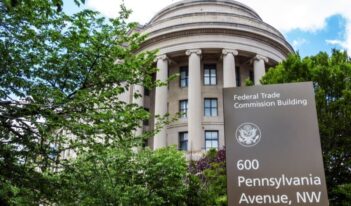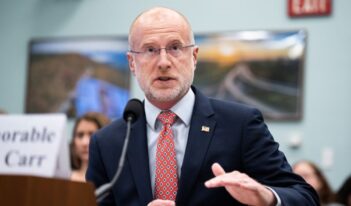
Scholars propose solutions to endless robocalling.
Receiving ominous calls about your car’s expiring warranty, even if you do not own a vehicle? Or perhaps vaguely worded voicemails alerting you to an alleged debt you need to pay right away?
Telemarketing—unsolicited calls or voicemails selling a product or service—is not a new phenomenon. Telemarketing operations blossomed in the early 1980s as technology enabled businesses to dial more consumers at a lower cost. Pre-recorded messages—also known as robocalls—could reach thousands of phones at once. Companies invested in telemarketing, finding it to be a productive method for increasing sales, and over the course of the next decade the telemarketing industry grew nearly ten-fold.
In 1991, Congress enacted the Telephone Consumer Protection Act (TCPA) to try to curb the deluge of unsolicited calls to consumers. The problem had gotten so bad that former Senator Ernest Hollings (D-S.C.), one of the sponsors of the TCPA, called robocalls the “scourge of modern civilization.”
Under the TCPA, the penalty for any robocall is $500 per call but can rise to $1,500 per call if petitioners can show in court that the robocallers “willfully or knowingly violated” the TCPA.
The TCPA was far from the death knell of the robocall, however. In another effort to stymie unsolicited calls, in 2003 the Federal Communications Commission (FCC) teamed up with the Federal Trade Commission (FTC) to launch the National Do-Not-Call Registry. Now administered by the FTC, the National Do-Not-Call Registry allows consumers to add their telephone numbers to a national database specifying that those numbers are, in theory, off limits for certain types of unwanted calls.
But even with the TCPA and the National Do-Not-Call Registry, robocalling has continued to grow. Americans received over 100 billion robocalls in 2019, with the average consumer receiving an unwanted call nearly every day.
In a further effort to address the seemingly unfettered growth of robocalling, Congress enacted the Telephone Robocall Abuse Criminal Enforcement and Deterrence Act (TRACED Act) in 2019. The TRACED Act, among other things, increased penalties under the TCPA, gave the FCC greater authority to enforce the TCPA, and required the FCC and the U.S. Department of Justice to work together to develop better methods for combatting robocalls.
In this week’s Saturday Seminar, scholars discuss telemarketing, robocalls, and the future of the TCPA.
- In an article in the Brooklyn Law Review, Nebraska College of Law’s Justin (Gus) Hurwitz explains that the TCPA bans robocalls without the “prior express consent” of the receiver. Hurwitz writes that, although the TCPA has faced challenges on First Amendment grounds, the U.S. Supreme Court has upheld the law based on precedent establishing the sanctity of and special right to privacy in the home. But Hurwitz explains that, because cell phones are now the primary recipients of robocalls, the TCPA effectively extends the special protection of homes to public spaces. In light of this shift to mobile devices, Hurwitz argues that the TCPA no longer passes constitutional scrutiny. Instead, he recommends that regulators encourage the development of technologies that would allow consumers to control their incoming calls.
- In an article in The Atlantic, Garrett Epps of the University of Baltimore discusses Barr v. American Association of Political Consultants, a 2020 Supreme Court case considering a carve-out within the TCPA for certain debt collection calls. Epps explains that the TCPA’s approach in banning only some categories of speech while allowing others—such as speech about debt collection—may violate the First Amendment. At the same time, Epps argues that the Court is unlikely to strike down the TCPA, which is popular with the public. In Barr, the Court ultimately ruled that, although the exception for debt collection did indeed violate the First Amendment, the exception was severable from the rest of the TCPA.
- The Supreme Court heard a second challenge to the TCPA in 2020 in Facebook v. Duguid. In an analysis in SCOTUSblog, Amanda Shanor of the Wharton School at the University of Pennsylvania predicts that the Court’s ruling could revolve around the grammar of a TCPA provision that suggests that regulated telephone number storage and production may include “using a random or sequential number generator”—the method used by robocallers. Either way, Shanor writes, the Court’s decision—expected by June 2021—is “likely to have huge implications for the future of both marketing and cell-phone spam.”
- In an article in the Journal of Law, Technology and Policy, Stuart L. Pardau of the California State University Northridge argues that since the mid-2000s, plaintiffs have taken advantage of ambiguities in the language of the TCPA to bring superfluous suits. He suggests methods to clarify ambiguities in the TCPA to protect against exploitative lawsuits and “stay true to the TCPA’s original purposes.” One way, Pardau proposes, is to narrow the definition of “autodialer” to punish only bad actors—robocallers who knowingly violate the TCPA—as opposed to all businesses that could theoretically misuse technology.
- Like robocalls, automated agents called “bots” can communicate through platforms such as cell phones or social media. In a recent UCLA Law Review article, Madeline Lamo of the Reporters Committee for Freedom of the Press and Ryan Calo of the University of Washington School of Law warn that the over-regulation of bot speech may implicate First Amendment concerns. Some experts have suggested adopting laws that require bots to identify themselves clearly as non-human speakers. Calo and Lamo argue that bot disclosure laws would constitute forced speech and that enforcing such laws would compromise the right to speak anonymously.
- The TCPA restricts political speech, a type of speech on which many Americans “place the utmost value,” Caroline Stephens explains. In a note published in the Alabama Law Review, Stephens concludes that the TCPA violates the First Amendment as it applies to robocalls made by political campaigns and polls. She writes that the government must have a compelling interest—a high bar—to limit political speech. Stephens claims that the government’s interest in protecting individuals’ right to privacy is not compelling enough to justify a ban on political robocalls, especially because most actors make calls to cell phones rather than home-based landlines that implicate greater privacy concerns. She also suggests that alternatives to the TCPA could protect privacy interests without raising First Amendment concerns. For example, Stephens argues that the government could place time restrictions on robocalls or allow individuals to opt-out from receiving certain calls rather than placing a blanket ban on political robocalls.
The Saturday Seminar is a weekly feature that aims to put into written form the kind of content that would be conveyed in a live seminar involving regulatory experts. Each week, The Regulatory Review publishes a brief overview of a selected regulatory topic and then distills recent research and scholarly writing on that topic.



